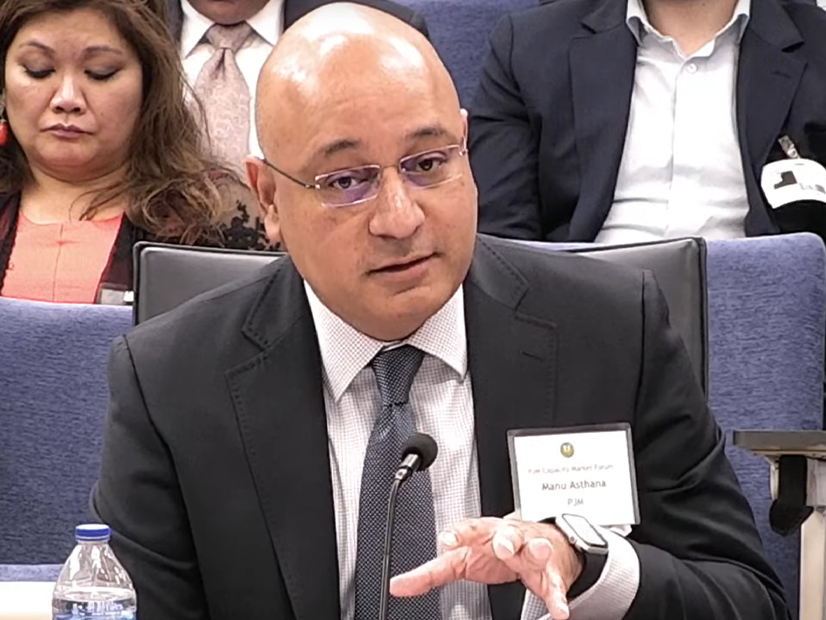PJM CEO Manu Asthana thanked a group of Ohio legislators in a letter Friday for their “constructive engagement” on the cost allocation implications of Illinois’ climate policies that will require fossil plants to start shutting down starting in 2030. (See Ohio Legislators Raise Concerns About Cost Impact of Illinois’ CEJA.)
Ohio House Public Utilities Committee Chair Dick Stein (R) and Senate Energy and Public Utilities Committee Chair Bill Reineke, along with 10 other colleagues, sent PJM a letter raising concerns about a preliminary estimate the RTO produced saying Illinois’ policy of retiring thermal power plants would lead to about $2 billion in transmission upgrades. In the letter and in meetings with RTO staff, they asked for a more formal estimate, including the assumption that Ohio is left out of that cost allocation.
“We appreciated the frank and open discussion regarding your concerns and your understanding of the limitations PJM faces in conducting exclusionary transmission studies,” Asthana wrote back. “The model that PJM uses for transmission analysis is not configured in a way that would let us exclude Ohio from the study results. The high-voltage transmission system is an interstate system, and electrons travel without consideration for state boundaries.”
Asthana said PJM is working to reform its markets and transmission planning, and in that effort, it hopes to better understand the impacts of federal and state policies on its system. “PJM pledges to work with Ohio policymakers to keep you fully informed of the transmission project development and cost allocation implications of our ongoing planning efforts related to this dynamic system.”
The Ohio legislators had written that the state has had success with PJM’s competitive markets, and Stein repeated that assertion in an interview with RTO Insider last week. But he said his constituents and others should not have to pay for the effects of another state’s policies.
“Ohio residents — and Pennsylvania and other surrounding states that are going to have to feed that power to them — shouldn’t be responsible for a policy another state makes that is that costly across the region,” Stein said.
Stein said he and his colleagues would continue to work with stakeholders in other states to ensure that reliability and affordability are maintained as the grid becomes more clean.
Illinois is not the only state shifting away from fossil fuel power plants to cleaner generation, the latter of which is exclusively being paid for by those state’s ratepayers. That new, renewable generation is going to add cheap power to the grid, which would tend to lower wholesale prices everywhere in PJM.
Those wholesale price impacts are part of the calculus going forward, but Stein said another concern is the capacity market and its continued ability to keep dispatchable generation that Ohio plans to keep using online. One option Stein said is off the table is state subsidies for those dispatchable plants, as the Ohio legislature does not want a repeat of House Bill 6, which was influenced by a bribery scheme by FirstEnergy. (See Former Ohio House Speaker Householder Sentenced to 20 Years in Prison.)
“All we’re trying to do is make sure we advocate for what we think is good policies here for Ohio; obviously, the people in Illinois are advocating [for] what they think the people in Illinois want,” Stein said. “And it really puts the most pressure on PJM because somehow they’ve got to bring all these elements together and make everybody happy. And as we well know, sometimes that’s not easy, if at all possible.”




